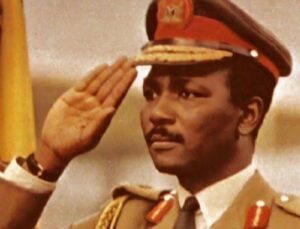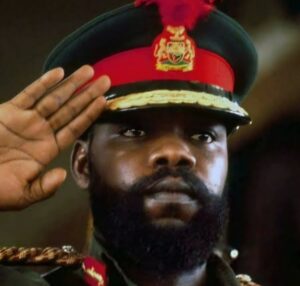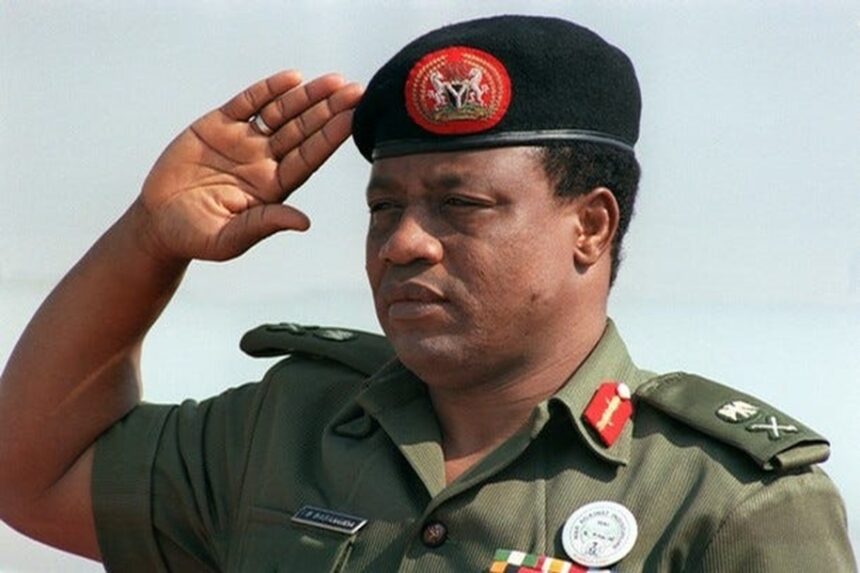Former military leader General Ibrahim Babangida has made a startling revelation, shedding new light on the turbulent events that led to Nigeria’s civil war.
According to him, this failure directly contributed to the horrific 1966 pogrom, in which thousands of Igbos were killed across northern Nigeria.
In his newly launched book, Journey in Service, Babangida traced the origins of the crisis to the appointment of then Lt-Col Yakubu Gowon as Nigeria’s new Commander-in-Chief, a decision that immediately sparked tensions between him and Lt-Col Emeka Odumegwu-Ojukwu.…CONTINUE READING


He disclosed that a crucial commitment made to the Igbos by General Yakubu Gowon that their lives were safe in northern Nigeria was ultimately unfulfilled.
He noted that Ojukwu, in a broadcast from Enugu, outrightly rejected Gowon’s ascension to power as Military Head of State and Commander-in-Chief.
“Lt-Col. Gowon assembled regional politicians, dubbed Leaders of Thought, to fashion a way forward for the country,” Babangida explained.
To restore stability, Gowon made a calculated political move by securing Yoruba support through the release of Chief Obafemi Awolowo from Calabar prison. “Obafemi was serving a prison sentence for treason in Calabar and with that move Gowon secured the much-needed support of the Yorubas at that time,” he stated.
However, while political alignments shifted, one vital promise remained unkept.
“Unfortunately, Gowon’s commitments to the Igbos—that their lives were safe in northern Nigeria—were unfulfilled,” Babangida revealed.
The consequences were catastrophic. “Almost simultaneously with the deliberations of the Leaders of Thought taking place in Lagos, perhaps the most horrific killings of Igbos occurred in different parts of northern Nigeria on September 29, 1966. The killings were frightening. A deluge of refugees swamped eastern Nigeria from practically all parts of Nigeria. Faced with this intolerable situation, Ojukwu, understandably, barred the eastern Nigerian delegation from further attending Gowon’s Peace and Reconciliation Talks in Lagos, insisting that the lives of Igbos outside eastern Nigeria were unsafe.”
With the nation at a breaking point, Ghana’s Head of State, Lt-General Joseph Arthur Ankrah, stepped in, offering a neutral ground for peace negotiations. “The country was locked in a national stalemate until Lt-General Joseph Arthur Ankrah, who had become Ghana’s Head of State after the overthrow of Kwame Nkrumah, stepped in by suggesting a neutral and safe venue for an actual reconciliation conference between Ojukwu and the Federal Government.”
This intervention led to the historic Aburi Peace Conference in Ghana, held between January 4 and 5, 1967.
“That intervention, seen as the last chance to prevent an all-out war, led to the famous Peace Conference in the southern regional town of Ghana, Aburi, between January 4 and 5, 1967. That conference between the eastern Nigerian delegation, led by Lt-Col. Ojukwu, and the federal delegation, led by Lt-Col. Gowon, resulted in the famous Aburi Accord.”
Yet, what transpired in Aburi would soon become the subject of intense controversy.
“In the absence of fully published records from the federal government regarding what transpired at the Aburi meetings, the details of what happened have remained speculative. While the published accounts of the eastern Nigerian delegation insisted that an agreement for a loose Nigerian federation was agreed to, the federal government claimed that the agreement reached was understood and seen within the framework of a united Nigerian state. The one area of agreement on both sides was that force was not to be used to settle the Nigerian crisis.”
Despite this, tensions remained high. The federal government responded by introducing Decree 8, which sought to implement the Aburi Accord based on its own interpretation.
However, this move only deepened the divide.
“In response to the Aburi Accord, the federal government promulgated Decree 8, which was meant to embody the Accord as understood by the federal government. At a meeting of the Supreme Military Council in Benin on March 10, 1967, where Decree 8 was to be ratified by the Military Governors, Ojukwu boycotted the talks, claiming that the Decree violated the spirit and meaning of the Aburi Accord.”
The final break had been reached. “These differences in interpretation were the final trigger for the outbreak of the Nigerian Civil War,” Babangida concluded.




